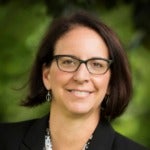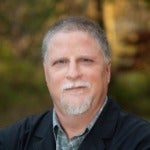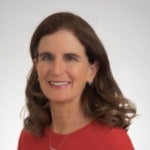Innovations and Evolutions in Employee Ownership
Description
The field of employee ownership is one in constant evolution. New forms of ownership are being created with some regularity, and the practice of starting and converting businesses to ownership continues to develop. These evolutions are in response to various factors including changing market conditions, policy and regulatory environments, and worker and business needs. But what they often share is a desire to innovate so that ownership and the benefits it provides can expand. This discussion will examine how companies and different organizations are innovating their models and practices to grow ownership in different regions in the US.
Speakers
 Christine Adee
Christine Adee
Co-Chief Executive Officer, OwnersEdge, Inc.Chris Cooper, Director, Ohio Employee Ownership Center
Chris Adee has more than 25 years of experience in business leadership and planning and financial and operations management. As co-CEO of OwnersEdge, a 100% employee-owned ESOP holding company with five operating companies, she is responsible for managing the fiduciary complexities of the ESOP, along with providing guidance on the profitability and growth trajectory for each of the operating companies and evaluating and directing risk management.
Adee has served on several boards, including two Wisconsin-based, 100% ESOP-owned companies, and is currently president of the Wisconsin Chapter of the Association for Corporate Growth. She earned her Master of Business Administration and bachelor’s degree from the University of Wisconsin – Milwaukee School of Business Administration. She’s attended executive post-graduate education programs at Wharton and the Kellogg School of Management at Northwestern University.
 Chris Cooper
Chris Cooper
Director, Ohio Employee Ownership Center
Chris Cooper has been at the Ohio Employee Ownership Center (OEOC) at Kent State University for 23 years, and has been Director since 2021. In addition to his work as Director, Cooper focuses on ownership culture education and coordinating Ohio’s Employee-Owned Network; working with business owners on succession planning and sales to employees; and business development and employee-owned start-ups. He has written a book on business succession planning; co authored a chapter for a book on employee ownership published by Centro de Capital Incluyente in partnership with ITESO Business School (Escuela de Negocios ITESO); co-wrote the USW/Mondragon/OEOC “Sustainable Jobs, Sustainable Communities: The Union Co-op Model; and an article on employee ownership and economic development for the journal of the International Economic Development Council.
He was also formerly a contributor on the COSE Mindspring website (an online resource for small business in NE Ohio), the Blog of the Small Business Advocacy Council in Chicago, and for Slate.com’s BizBox blog. In 2010, Chris was designated a Certified Exit Planning Advisor (CEPA) from the Exit Planning Institute (EPI). He has worked with organizations and companies around the US, as well as in Bermuda, Canada, and Wales. Prior to joining the Center, he was a substitute teacher with the Kent City Schools; and was an organizer with SEIU Local 47 in Cleveland, OH.
 Corey Rosen
Corey Rosen
Founder and Senior Staff Member, National Center for Employee Ownership, Faculty Fellow and Member, Rutgers Institute for the Study of Employee Ownership and Profit Sharing
Corey Rosen is the founder and an active staff member of the National Center for Employee Ownership (NCEO), a private, nonprofit membership, information, and research organization. The NCEO is widely considered to be the authoritative source on broad-based employee ownership plans. He co-founded the NCEO in 1981 after working five years as a professional staff member in the US Senate, where he helped draft legislation on employee ownership plans. Prior to that, he taught political science at Ripon College. He is the author or co-author of over 100 articles and numerous books on employee ownership, including “Equity: Why Employee Ownership is Good for Business” (Harvard Business School Press, 2005), co-authored with John Case and Martin Staubus, and “Ownership: Reinventing Companies, Capitalism, and “Who Owns What” (Berrett-Kohler, 2022), co-authored with Hohn Case. He has lectured on employee ownership on six continents.
He has a doctorate in political science from Cornell University. He previously served on the board of directors of the Great Place to Work Institute, creators of the “100 Best Companies to Work for in America” list. He currently is on seven ESOP company boards, with fees going to support the work of the NCEO. In 2009, he was awarded the Txemi Cantera Social Economy Award, given annually in Spain.
 Aquilina Soriano Versoza
Aquilina Soriano Versoza
Executive Director, Pilipino Workers Center, Executive Fellow, Rutgers Institute for the Study of Employee Ownership and Profit Sharing
(Bio forthcoming)
Moderator
 Mary Josephs
Mary Josephs
Founder and Chief Executive Officer, Verit Advisors,
Contributor, Forbes
Mary Josephs is a recognized authority on family and private company finance, governance, and employee stock ownership plans. She has more than 30 years of experience assisting 300 ownership transitions for middle-market companies. Before starting Verit Advisors in 2009, she founded LaSalle National Bank’s ESOP group and later led Bank of America-Merrill Lynch’s ESOP Solutions Group.
Mary is a director of Manson Construction and Performance Contracting. She is also on the ESCA advisory board and a lifetime member of the ESOP Association’s board of governors. Mary was selected by Mergers & Acquisition magazine as one of the most influential women in mid-market M&A. Chicago Crain recognized her as a notable entrepreneur in 2019, and Private Board Directors magazine named Mary a director to watch in 2019.